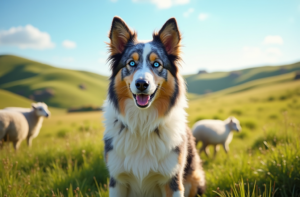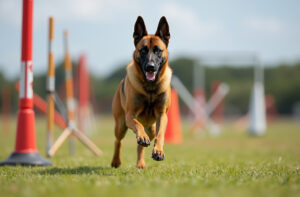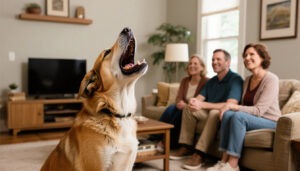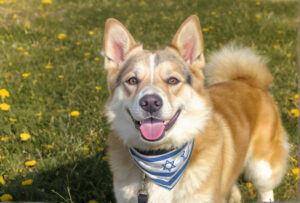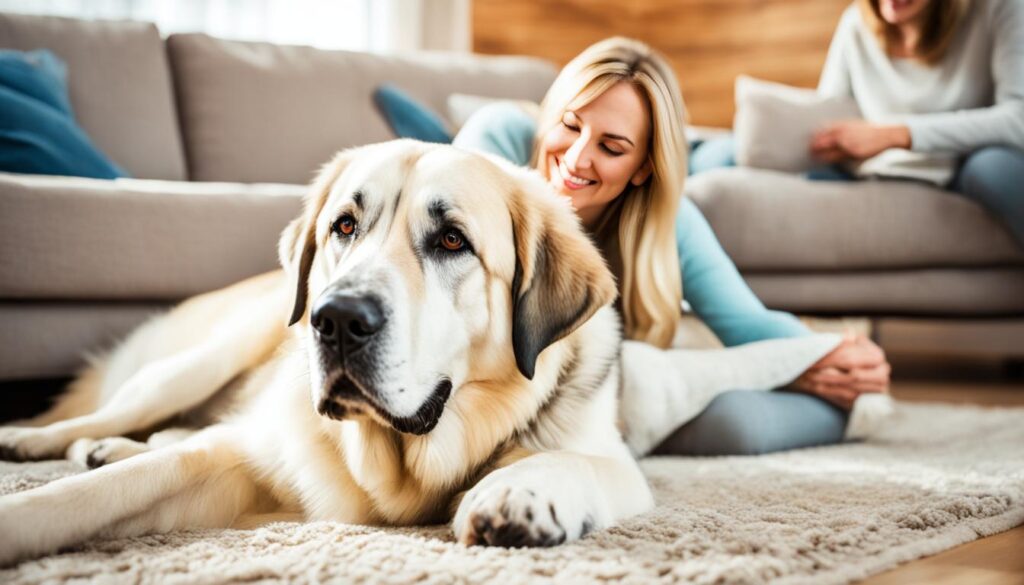
Is an Anatolian Shepherd a Good Family Dog, Did you know that the Anatolian Shepherd is one of the top choices for families looking for a loyal and protective canine companion? With their impressive size and natural guarding instincts, these beautiful dogs bring a unique set of qualities to the table that make them suitable for certain households. If you’re considering adding an Anatolian Shepherd to your family, it’s crucial to understand their temperament, behavior, and care requirements to ensure a harmonious and fulfilling relationship. Let’s dive deeper into what makes the Anatolian Shepherd a potential good fit for families.
Key Takeaways: Anatolian Shepherd a Good Family Dog
- Anatolian Shepherds are known for their loyalty and protective nature, making them potentially good family dogs.
- They have strong guarding instincts and require proper training and socialization to manage their suspicion towards strangers and potential animal aggression.
- Anatolian Shepherds thrive in spacious environments with secure fences and regular exercise.
- Their temperament and behavior may not be suitable for all families, and they require an experienced and assertive owner.
- Understanding the specific care and grooming needs of an Anatolian Shepherd is crucial for their overall health and wellbeing.
Anatolian Shepherd Breed Traits
Anatolian Shepherds are known for their unique temperament, personality, and behavior. Understanding these traits is essential for anyone considering this breed as a pet or working companion. Let’s explore the key characteristics of Anatolian Shepherds:
Anatolian Shepherd Temperament
The Anatolian Shepherd has a serious and reserved temperament. They are naturally calm and tend to display subdued behavior. This breed is not known for being overly energetic or excitable. Instead, they possess a quiet confidence that adds to their commanding presence.
Anatolian Shepherd Personality
The personality of an Anatolian Shepherd often revolves around loyalty and protectiveness. They have a strong instinct to safeguard their family, making them excellent watchdogs. This breed remains alert at all times and is always on guard against potential threats. Their protective nature creates a deep bond with their owners, fostering a sense of trust and reliance.
Anatolian Shepherd Training
Training an Anatolian Shepherd requires patience, consistency, and firmness. This breed possesses a strong-willed mind of their own, making it essential to establish clear boundaries and provide assertive leadership from an early age. Early training and socialization are crucial to manage their natural suspiciousness towards strangers and potential animal aggression. Obedience training classes and positive reinforcement techniques can produce well-mannered and obedient Anatolian Shepherds.
Anatolian Shepherd Behavior
Anatolian Shepherds exhibit a few distinct behavioral traits. They are known for their deep booming bark, which they use as a way to communicate and protect their territory. Additionally, this breed sheds heavily, requiring regular grooming to keep their coat healthy and free from excess hair.
Pros and Cons of Anatolian Shepherds
| Pros | Cons |
|---|---|
| 1. Loyal and protective companions | 1. Natural suspiciousness towards strangers |
| 2. Calm and subdued temperament | 2. Potential animal aggression |
| 3. Excellent watchdogs | 3. Heavy shedding |
| 4. Deep booming bark |
Anatolian Shepherd Advice and Information
To ensure a harmonious relationship with an Anatolian Shepherd, here are some important pieces of advice and information:
- Provide consistent training and socialization to manage their protective instincts and potential aggression.
- Establish yourself as the pack leader and provide assertive leadership.
- Invest time and effort into grooming their heavy coat to keep it healthy and minimize shedding.
- Expect a deep booming bark, which is a natural part of their protective nature.
Now that you understand the temperament, personality, and behavior of Anatolian Shepherds, you can make an informed decision about whether this breed is the right match for you.
Understanding the unique temperament and behavior of Anatolian Shepherds is essential for anyone considering this breed. Their calm and reserved temperament, paired with their loyalty and protectiveness, make them stand out as individual and fascinating companions.
Anatolian Shepherd as a Livestock Guardian
The Anatolian Shepherd is renowned for its exceptional abilities as a livestock guardian. With strong instincts deeply ingrained through years of breeding, this breed is perfectly suited for protecting animals such as sheep, goats, horses, llamas, and chickens.
Their imposing size and intimidating presence serve as a deterrent to potential predators, showcasing their effectiveness as flock protectors. Anatolian Shepherds possess a natural inclination to guard and defend their charges, making them invaluable in rural areas where livestock is at risk.
The independent and protective nature of Anatolian Shepherds allows them to operate autonomously in their guarding duties. They are instinctively aware of potential threats and possess a keen ability to discern friend from foe. With an Anatolian Shepherd as a guardian, livestock owners can rest assured that their precious animals will be safe and secure.
Anatolian Shepherds bring unparalleled dedication to their role as livestock guardians. Their commitment to safeguarding animals is unmatched, making them an invaluable asset to any farm or ranch.
Anatolian Shepherd Care and Maintenance
Proper care and maintenance are crucial to ensuring the health and well-being of your Anatolian Shepherd. This section will provide essential information on grooming, exercise, space requirements, diet, and common health issues that you should be aware of.
Grooming
Anatolian Shepherds have a short, low-maintenance coat that requires weekly brushing to manage shedding. Regular brushing helps remove loose fur and keeps their coat clean and healthy. Additionally, it provides an excellent opportunity for bonding with your dog.
Exercise and Space Requirements
Anatolian Shepherds have moderate exercise needs and require ample space to roam. Daily exercise, including long walks and playtime, is essential to keep them physically and mentally stimulated. It is recommended to have a securely fenced-in yard to provide them with the space they need to burn off energy and explore their surroundings.
Diet
Proper nutrition is vital for the Anatolian Shepherd’s overall health. A balanced and high-quality diet that meets their specific dietary requirements is crucial. Consult with your veterinarian to determine the best diet plan for your Anatolian Shepherd, considering factors such as age, weight, and any specific health concerns.
Health Issues
While Anatolian Shepherds are generally healthy dogs, they can be prone to certain health issues. Some common health issues that can affect Anatolian Shepherds include:
- Elbow dysplasia
- Hip dysplasia
- Entropion (a genetic eye condition)
- Sensitivity to anesthesia
- Gastric dilatation and volvulus (bloat)
Regular veterinary check-ups and preventative care are essential to detect and address any potential health issues early on.
| Health Issue | Description |
|---|---|
| Elbow Dysplasia | A developmental condition that affects the elbow joint, causing pain and lameness. |
| Hip Dysplasia | A common condition where the hip joint doesn’t develop correctly, leading to arthritis and mobility issues. |
| Entropion | An inward rolling of the eyelid, causing irritation and potential damage to the eye. |
| Sensitivity to Anesthesia | Anatolian Shepherds can have a heightened sensitivity to anesthesia, so it’s important to inform your veterinarian if your dog requires any procedures. |
| Gastric Dilatation and Volvulus (Bloat) | A life-threatening condition where the stomach twists, leading to bloating and potential organ damage. Immediate veterinary attention is required. |
Anatolian Shepherd Temperament and Behavior
Anatolian Shepherds are known for their calm and alert temperament, making them excellent watchdogs and protectors of their family. Their loyalty knows no bounds, and they will go to great lengths to ensure the safety of their loved ones. With proper socialization, these dogs can learn to distinguish between normal behaviors and potential threats, providing a level of security and peace of mind to their owners.
Training an Anatolian Shepherd can be a challenge due to their independent and dominant nature. They have a strong will and may test their owner’s authority. However, with consistent training methods and positive reinforcement, these dogs can become well-mannered companions.
It is important to start training and socializing Anatolian Shepherds from a young age. Early exposure to different people, animals, and environments will help them develop confidence and adaptability. This breed benefits from structured training programs that focus on positive reinforcement techniques.
Anatolian Shepherds are generally good with older children and other pets if they have been properly socialized. However, they may be wary of strangers and exhibit protectiveness towards their family. This behavior can be managed through early socialization and ongoing training.
Overall, Anatolian Shepherds are intelligent and loyal dogs with a protective instinct. With the right training, socialization, and guidance, they can make wonderful companions for responsible owners.
Training Tips for Anatolian Shepherd
- Start training and socialization from a young age to build a strong foundation.
- Use positive reinforcement techniques such as treats, praise, and rewards.
- Be consistent and patient during training sessions.
- Establish yourself as the pack leader and assert your authority while maintaining a fair and compassionate approach.
- Focus on obedience commands, leash training, and proper behavior around people and other animals.
- Provide mental stimulation through interactive toys and games.
- Continue training and socialization throughout their lives to reinforce their skills and maintain good behavior.
“Anatolian Shepherds have a calm and alert temperament, making them excellent watchdogs and protectors of their family.”
A Comparison of Anatolian Shepherd Temperament and Behavior
| Temperament | Behavior | Loyalty | Protectiveness | Socialization | Training |
|---|---|---|---|---|---|
| Calm and alert | Protective of family | Highly loyal | Strong instinct to protect | Requires early socialization | Independent and dominant, requires consistent training |
Anatolian Shepherd Grooming Guide
Proper grooming is essential for maintaining the health and appearance of your Anatolian Shepherd. While they have minimal grooming needs compared to some other breeds, regular grooming practices can help keep their coat, eyes, and ears in optimal condition. Here’s a comprehensive Anatolian Shepherd grooming guide to help you care for your beloved pet.
Coat Care
Anatolian Shepherds have a short, double coat that provides insulation and protection against various weather conditions. Despite their short coat, they do shed moderately year-round and have a heavier shedding period twice a year. To minimize shedding and keep their coat healthy, regular brushing is necessary.
Using a slicker brush or a grooming mitt, gently brush your Anatolian Shepherd’s coat at least once a week. This will help remove loose fur, prevent matting, and promote healthy hair growth. Pay extra attention to areas prone to matting, such as behind the ears and under the neck.
Although bathing is not required frequently, occasional baths can help keep your Anatolian Shepherd clean and fresh. Use a mild dog shampoo and thoroughly rinse their coat to remove any soap residue. Be sure to dry them completely to prevent skin issues.
Eye Care
Anatolian Shepherds are prone to certain eye conditions, including entropion, where the eyelids roll inward, causing discomfort and potential damage to the cornea. Regular eye care can help identify and address any issues promptly.
Inspect your Anatolian Shepherd’s eyes regularly for any signs of redness, discharge, or excessive tearing. If you notice any abnormalities, consult your veterinarian for a proper diagnosis and treatment. Keeping their eyes clean and free from discharge can be achieved by gently wiping the area with a soft, damp cloth.
Ear Care
Due to their floppy ears, Anatolian Shepherds are more prone to ear infections. Therefore, regular ear care is crucial to prevent any discomfort or complications.
Check your Anatolian Shepherd’s ears weekly for signs of redness, swelling, or a foul odor. Use a veterinarian-approved ear cleaner to gently clean the inside of their ears, avoiding deep penetration. Remember to use a clean cotton ball or pad for each ear to prevent the spread of any potential infection.
Grooming Considerations
When grooming your Anatolian Shepherd, it’s important to consider their individual needs and temperament. Some additional grooming considerations for Anatolian Shepherds include:
- Trimming their nails regularly to maintain proper foot health.
- Brushing their teeth regularly to prevent dental problems.
- Monitoring their paw pads for any signs of injuries or irritations.
- Providing regular veterinary check-ups to ensure overall health and well-being.
Remember to approach grooming sessions with patience and positive reinforcement. Use treats and praise to make the experience enjoyable for your Anatolian Shepherd, strengthening the bond between you and your furry companion.
| Grooming Needs | Care Practices |
|---|---|
| Coat | Regular brushing to remove loose fur |
| Eyes | Regular inspection and gentle cleaning with a soft, damp cloth |
| Ears | Weekly check-up and cleaning with a veterinarian-approved ear cleaner |
| Nails | Regular trimming to maintain foot health |
| Teeth | Regular brushing to prevent dental problems |
Anatolian Shepherd a Good Family Dog Conclusion
Anatolian Shepherds are a unique breed known for their protective and loyal nature. They can make excellent family dogs, but it’s important to note that they are best suited for experienced owners who can meet their specific needs.
With their calm and alert temperament, Anatolian Shepherds can be great companions for families with older children. They have a strong instinct to protect their family and can be loving and devoted. However, they require dedicated training and socialization from a young age to manage their natural suspiciousness towards strangers and potential animal aggression.
To thrive, Anatolian Shepherds need a spacious environment with a secure fence. They require regular exercise to keep them happy and healthy. These dogs are not recommended for apartment living or families with limited space. With the right conditions and guidance, Anatolian Shepherds can bring joy and companionship to the right family.
Anatolian Shepherds can be a good choice for families who are experienced with large breeds and understand their unique characteristics. They are protective and loyal dogs that require dedicated training and socialization. With the right environment and care, Anatolian Shepherds can be a loving and devoted family companion.
However, it’s important to consider their specific needs and temperament before bringing one into your home. These dogs thrive in spacious environments with plenty of exercise opportunities and a secure fence. If you have the time, patience, and resources to meet their requirements, an Anatolian Shepherd can be a wonderful addition to your family.




